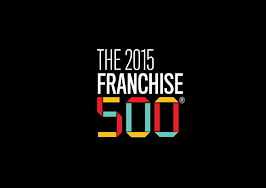- Arizona-based real estate group HomeSmart International is planning to go from 10,300 agents to 100,000 by 2021.
- It is opening in 19 new markets this year, including Atlanta, Nashville, Philadelphia and Cincinnati.
- HomeSmart 's founder and president believe tech-forward brokerages will win the consumer.
Hiring someone with an extensive background in talent management and organizational growth as newly promoted HomeSmart International president Ashley Bowers has, may be one of the smartest things the company’s founder, Matt Widdows did a couple of years ago.

Matt Widdows
Because when you have a goal to expand your real estate company from 10,300 to 100,000 agents by 2021, you are going to need someone in charge who knows how to motivate people and bring them together with a common goal and a common culture.
It used to be HomeSmart was very “CEO-centric,” said Widdows. “Everybody was getting a lot of Matt love — but it does not work that way any longer. There have been pretty dramatic changes.”
HomeSmart’s history
Founded in 2000 by Widdows, HomeSmart International is ranked as one of the top real estate franchises in the United States by the Entrepreneur 500 and INC 5000. Based in Scottsdale, Arizona, it began franchising in 2010.
Widdows said he now relies on Bowers and his leadership team to take his ideas and pass them on.
“We are like-minded in the way we function, but he leaves the operations to me. He has great ideas for the business and we work together so I can take his ideas and motivate the team to execute them. We complement one another,” said Bowers.
She joined the company as COO in November 2013. Widdows initially brought her in as a consultant to help find someone for the C-suite position, and after two months of searching, he said: “I want you.”

Ashley Bowers
As former president of Target Training International in the U.S. and Canada, Bowers’ role was to go out across the industry, work with organizations and help create their company culture.
She has done a similar thing at HomeSmart, as well as being credited with spearheading the company’s growth and attracting top real estate industry talent to the company’s leadership team.
Added Widdows: “You can’t force culture. It’s like a garden. You make sure the soil is as good as you can, mulch it, but it has to grow itself. Hopefully, it grows in a positive way.”
Bringing your people with you
As the now-president of HomeSmart International, Bowers has a big job in front of her. In an industry where a number of other companies are expanding aggressively, she and Widdows and have set out quite an ambitious schedule.
The company will be relying partly on rolling out its franchise network to reach those heady expansion numbers as well as through acquisition and merger, which will be internally financed, according to Widdows. The entrepreneur has no interest in answering to a board, investors and stakeholders.
“We work hard and play hard. We like to set ‘ridiculous expectations’ and make these expectations normal,” said Bowers.
“People need to understand what they do has an effect on the organization — they need to know how what they do contributes and where that value comes from,” she added.
And although real estate commentator Rob Hahn suggested in an Inman article that Realogy might buy HomeSmart this year, Bowers said the company prefers to follow its own path.
She is aiming to grow the business from 10,300 to 15,000 agents by the end of this year and has set an 11 percent attrition rate target in 2016 down from 14.7 percent in 2015.
Half of the current HomeSmart agent count of 10,300 is in the 16 HomeSmart corporate-owned offices in Phoenix, Denver and Palm Springs, and the sales volume of all the corporate offices was close to $6 billion last year.
Bowers is enjoying the ride of the current buoyant market.
“So many of the brokerages are doing well, it’s definitely an interesting time — corporately, we are having record months,” she said.
In its founding brokerage in metropolitan Phoenix, HomeSmart has 27 employees and the 5000 agents in 10 offices there produced nearly 20,000 sales sides in 2015.
“In Phoenix, we rank as the second-highest company when it comes to selling luxury,”said Bowers.
HomeSmart operates in all kinds of niches, from first homes to investment properties.
‘We have to be prepared to handle it all,” she said.
HomeSmart route of expansion
To date, HomeSmart has 47 franchises in 15 states, including Washington, Oregon, California, Arizona, New York, New Jersey, Florida, Colorado and Oklahoma.
The company is expanding to 19 new markets this year via merger, acquisition and franchise sales in Atlanta, across Tennessee, Philadelphia, Cincinnati, parts of Texas and Florida.
It is also identifying conversions and branch office expansions in every state.
“Our market selection is strategically based on where there are existing companies that would fit well into our model, where the market trends indicate growth and where we want to expand,” said Bowers.
The HomeSmart model
The initial franchise fee for a HomeSmart franchise is $20,000. The ongoing royalties for a franchise is $120 per transaction, on average, and HomeSmart International is a 100-percent-commission model.
“We provide all the things of the traditional brokerage — the same level of support, if not greater, than the traditional model company, but we provide more technology at no cost to agents,” said Bowers.
This includes a transaction management system, front-end consumer websites, CMAs (comparative market analyses), CRM (customer relationship manager) with drip marketing, automated listing marketing, email service and more.
Bowers describes it as a full end-to-end proprietary system with one single login.
As well as the technology platform, the company prides itself on being available to agents throughout their transactions, guiding new agents with their first three deals, if required, for a fee.
“We have a high-touch approach to education and training, delivering relevant marketing materials to agents and brokers and helping brokers operate their businesses using our founding franchise in Phoenix as a model since it’s one of the most successful brokerages in the United States,” said Bowers.
The kinds of companies HomeSmart is looking to buy
As it grows, the business is attracting both affiliated and unaffiliated brokerages who want something more for their businesses and agents, said the president.
“They are people who want to grow but are limited by the high cost of doing business elsewhere and the lack of integrated technology. Our model works for a variety of companies,” she said.
Of the company’s acquisitions, a strong percentage are independent companies that are either looking to expand or want to retire and sell their businesses.
From a franchise sales perspective, the interest is widespread across traditional model companies, flat-fee model companies, independent brokerages and affiliated brokerages, said Bowers.
“What we are finding is that our model works for all different types of brokerage companies.”
As for Bowers’ view on what makes a good agent after a few years in the business, she said it is someone who has “entrepreneurial spirit.”
“We look for people who want be their own boss and understand that that comes with a lot of work.”
Having worked in other industries, Bowers has an appreciation for people who do not know real estate and what they can bring.
“We have a lot of team members with deep real estate industry experience and knowledge which is a huge benefit to our franchisees. However, we also attract employees without industry experience — and this has often brought about fresh ideas and it helps us push the envelope.”
Tech-lead brokerages will take the lead in the real estate industry.
HomeSmart agents are well positioned for the changes being heralded in the market, said Bowers.
Widdows said he spoke recently at a conference predicting there was going to be a pushback on agent commissions as consumers did more.
Both he and Bowers agree that some changes are coming to the real estate industry, with consumers leading the charge.
“The consumers are going to drive the tech as millennials come in to buy homes,” said Bowers.
“If our buyers and sellers change what they think is acceptable, we, as an industry, are going to have to change with that to meet their expectations,” she said.
One of HomeSmart’s strengths is its proprietary technology — Widdows says they spend between $2 million and $3.5 million a year on tech innovation.
Real estate companies who don’t have this to offer their agents will be disadvantaged, said Bowers.
“For companies or brokerages that have a high technology overhead, this will prove difficult since the consumer is increasingly more tech-savvy and demanding online. At HomeSmart, we are able to flex and move with consumer needs much more quickly.”
The future for real estate
Bowers and Widdows are united in their belief on the continued value of an agent but see their role as changing.
“Having sat in the kitchen of a rehabbed house and negotiated with a buyer, it’s a tough thing to do. We really need that intermediary there — that’s the role of the agent as well as their knowledge about the contracts signed, the lender and so on,” said Widdows.
“When I purchased my own home (recently) as a consumer, I did all of my own research on listings and knew exactly what I was looking for and where. But, that doesn’t diminish my need for a Realtor, it just changes my needs and shifts the value the Realtor brings to the table.
“Regardless of technology, consumers still need a relationship with the real estate agent and their expertise to get the job done well,” said Bowers.













